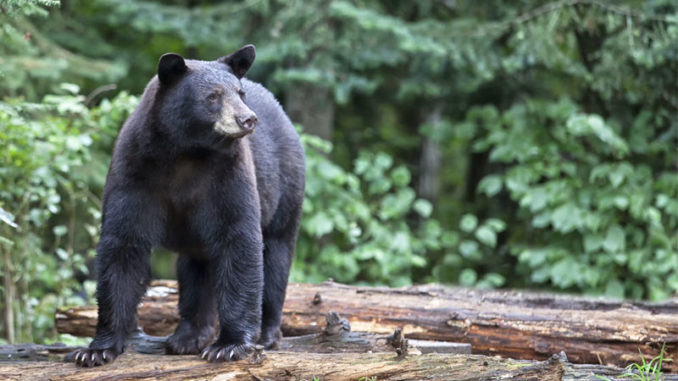
N.C. hunters killed 3748 bears during 2020 season
Results from the N.C. Wildlife Resources Commission’s 2020 annual bear harvest summary show that hunters statewide recorded the highest harvest total on record at 3,748 bears — an 8% increase compared to the previous season.
Record breaking harvest totals were recorded in the Coastal and Piedmont Bear Management Units (BMU), 2,238 and 81 respectively. The Mountain BMU experienced its second-highest recorded harvest of 1,429 bears.
“The increase in harvest likely reflects the “COVID effect” that several states, including North Carolina, have experienced,” stated Colleen Olfenbuttel, black bear & furbearer biologist in the Game & Furbearer Program at the Wildlife Commission. “During 2020, many North Carolinians reconnected with the outdoors, including participating in regulated hunting. We set a record for the number of bear e-stamps issued, 88,411, which was also an 8% increase.”
Bear hunting seasons are highly regulated and play a key role managing local bear populations, resolving agricultural damage, providing wild game meat to communities and families and helping to enforce a bear’s natural fear of people. Wildlife Commission staff closely monitor trends in the harvest, including the female harvest, which was up 13% in 2020 with the highest harvest sex ratio since 1998. The Coastal BMU had the highest ratio of females (44%) comprising the harvest among the three BMUs.
Majority of bears were harvested in the Coastal BMU
“The Commission works continuously to assure bear hunting seasons remain sustainable so that we can continue to maintain our successfully restored bear population,” Olfenbuttel stated. “Based on our most current data, we are meeting population objectives for the Coastal BMU, which is to stabilize population growth. We will continue to conduct research and monitoring efforts in all BMUs to have the best science to inform future management decisions.”
Other season results show that the majority of the bear harvest occurred in the Coastal BMU (6o%), followed by the Mountain BMU (38%) and Piedmont BMU (2%). This is a trend that has stayed the course since the mid-1990’s.
While most bears are harvested on private lands, 17% of the harvest occurred on Commission game lands, which serve as an important source of hunter access. The majority of successful hunters used the assistance of dogs for harvesting bears, however the number of still hunters is increasing. A total of 41% of successful bear hunters reported they used still hunting to harvest their bear in 2020, which is the highest percent since the Commission started requesting this information via the Big Game Harvest Report in 2009.
Hunter cooperation is a big help to NCWRC’s bear management efforts
Preliminary data shows that 45% of successful hunters participated in the NC Bear Cooperator Program, which is a 3% decrease from the year prior and likely due to COVID restrictions resulting in a reduced staff presence at check stations. The program lets hunters directly participate with the Commission in monitoring the bear population when they voluntarily submit the premolar teeth from their harvested bear.
“We’d like to see much more participation in the Bear Cooperator Program,” said Olfenbuttel. “Hunter submissions are critical to gathering information about the age structure of the harvest, which helps us monitor trends in the bear population. This information is key to evaluating impacts of current hunting seasons and help us assess if potential changes to hunting seasons will assist in meeting population objectives.”
The Commission posts its annual harvest summaries on the black bear webpage, as well as live harvest reports, which are available anytime. A comprehensive 2020 Bear Annual Report is published in the fall. The 2019 report is available on the agency’s website now.



Be the first to comment